Dedza
Connecting Classrooms through global learning
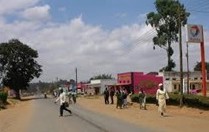
COVID 19 IN DEDZA
The information I have gathered about the situation in Dedza comes from my contact with Makaka Nkhoma, Head of Kaphuka Primary School and Susan Nyirongo, a clinician at Dedza Hospital. Makaka provides me with the government published daily tables for the whole of Malawi. I certainly have no access to any district official information.
We just wanted to give you an overview, not to use this for any decision making.
Early on in the global spread of Corona, all schools closed. However, as you probably know, attendance at church for the people of Dedza is an absolute priority, so large groups of people were still meeting. Villagers live a communal life and markets abound. I think the government declared a maximum of 100 people mixing!!
However, just for once in this unequal world of ours, the UK is suffering much greater effects. As you can see from the table, casualties are far fewer in Malawi. There is limited PPE but the health system is coping. Schools have returned. Susan tells me that Covid is not a problem at Dedza Hospital.
Sadly, one factor is probably that there are far fewer older people with underlying health conditions. Few of the expensive drugs and surgeries we rely on are available in Malawi. People who develop cancer, for example, usually just die.
Our friends in the Partnership worry for us, and take hygiene precautions themselves.
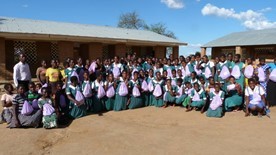
ANOTHER BRICK IN THE WALL!!
Is it just Sue and I who will recognise this reference?!
Although the funding from the British Council for our work, and the objective of the Norfolk Dedza Schools Links, is to impact directly on the learning experience of all our pupils, some children and teachers have been really keen to raise money for their partner school. It somehow taps into their desire to make a tangible, visible difference.
Here are some wonderful examples:
Avenue Junior children raised enough money to set up a solar library and light all classrooms at Bolera School
Reepham Primary raised money for classroom repairs and Alison organises the making and sending of washable sanitary pads to Tapezana Primary.
Alburgh-with-Denton children raised money to build a new classroom at Ngoni Primary.
There have been many more initiatives over the years.
It is certainly your school’s choice whether to fund raise, and for what. However, we’d like to flag up the idea of a cluster fundraiser.
Primary School girls in Dedza often have to miss school when they have their period. (Primary schools in Malawi don’t work in age bands, some girls may be 16 and go to a Primary School). We’d like to raise money to build girls’ hygiene rooms, where they can keep themselves clean and dignified. The cost to build a hygiene room is about £300. A few schools already have these.
This project would tie in with our focus on gender equality.
The advantage of a cluster project is that it evens out the financial catchment differences and size of our primary schools. The disadvantage is that any money you raise may not go directly to your partner school.
WHAT DO YOU THINK?
HERE ARE YOUR WONDERFUL COMMENTS…
The recent visit to Malawi and Bolera Chiwina School helped to bring the partnership to life after a long period without reciprocal visits. The collaborative project on energy and sustainability gave students in both countries great focus and motivation. Understanding the teaching approaches and resources available in Malawi has made me reflect on how privileged we are in the UK, but also how we can best make use out of some very simple, commonly available resources - especially those natural resources Dan
Travelling to Malawi made me realise how little our children know about how little other children have. It also made me want to go back and teach full time. On a personal level, it was humbling to see how welcomed we were, and how engaged the pupils were. Jane
My life has changed for the better since my visit to this amazing country. To see how people live in this country, with bare essentials, walking for water, growing crops, cooking on a hob the size of a small flowerpot, wearing any piece of material or clothes they can find. The school classes of 100 pupils on a good day, the use of local resources to teach, the lack of what we call essentials in our classrooms. How the weather can change from 40+ in the summer, to torrential rain and typhoons in the other seasons, yet the children are sat outside under a tree learning. Yet the people I have met, who became my friends, welcomed me into their world and I welcomed them into mine. They are the most kind and resilient people you could wish for as you friends.
Since returning, thoughts of Africa and my new friends drift into my head daily, either with regret that it will be a long while before I can visit and see them again, or with frustration at what we call hardship in England is luxury in Malawi.
Mainly the love I felt travelling and how we shared this experience with 220 small people at school, their excitement in meeting Ben for the first time, the inquisitive questions from all children in regards to how he lives, how he works, his family and the country from which he has travelled.
I loved the exchange and will travel again to see my friends and this beautiful country. Alison
For me, the visit highlighted both differences and similarities between our education, but I was more surprised by the latter. Children are still children the world over, curious, delightful and a joy to be with even if you don’t understand the language! Teachers are teachers, passionate, dedicated and seriously underrated. For me, the visit highlighted what we share, and can share for everyone’s benefit and future that is so important. Jane
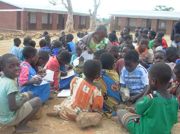
I had never visited Africa before this opportunity arose and of course it was an incredibly daunting prospect when I first decided to take part. The Norwich-Dedza partnership was so fantastically well organised from beginning to end, with lots of training sessions prior to departure to help the group bond and learn, so I always felt like I was in safe hands. The whole experience has expanded my outlook and understanding of different cultures, it has grown friendships and enabled me to share my knowledge with my pupils in a way that I would never have been able to do had I not taken part in this visit. It has most definitely changed me and taught me to value what is important in life. Jan
A beautiful country, amazing schools and children. Lifelong friendships have been made. A reciprocal visit that has raised awareness, made connections and had an impact that my pupils are still talking about. Caroline
After visiting Dedza, one of the biggest things I reflected on was the use of resources, both within the classroom and the natural environment beyond the classroom, for teaching and learning. Discussions with staff in Dedza helped us to evaluate the usefulness and ‘need’ of certain resources, helping me to become more mindful of what I’m using, and why. Julie
Travelling to Malawi opened my eyes to a completely new experience. I found Dedza incredibly welcoming and I fell in love with the country and its people. It made me see the world through a different lens and appreciate challenges in a new light. Ade
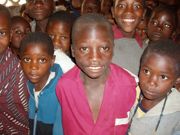
AND FROM DEDZA……
My visit to Norfolk has left a permanent mark on my life. I have been involved in the Dedza-Norwich partnership since 2013. I have learned a lot since then. My ultimate experience was when I got involved in an exchange visit in 2019. There are a lot of things I gained from the visit both professionally and personally.
On a professional level, it gave me an opportunity to interact with fellow professional teachers at different levels. I had an opportunity to visit two nursery schools, two primary schools and two secondary schools. I spent most of my time with Framingham Earl High School. While here I attended a staff meeting where I was welcomed warmly.
At Framingham Earl High school I visited their Library. I was fascinated with how learners with different levels of comprehension are assisted. The books are categorized according to the level of comprehension by the learners. For example, if the level of comprehension is, say, low, that is given a colour like yellow. And the books comprehensible to such learners are given a yellow sticker. This helped the librarian to help the learners at different levels to get relevant books as regards their level of comprehension.
I also had a chance to visit ‘The Den’ where learners with special needs are attached and helped with their studies. Malawi is currently implementing inclusive education in all schools including my school, Umbwi secondary school. It was therefore a great opportunity to have first hand knowledge from colleagues who implemented inclusive education long ago. While here I learnt how students are categorized and assisted. The very idea of the Den was mind blowing to me.
In general, the commitment of teachers from nursery schools all the way to secondary schools was something to emulate. The way teachers modelled to their learners like opening doors for them was something I noticed. This would help create the kind of relationship between teachers and learners that may facilitate teaching and learning. The experience gained is too much to unpack in one article.
While many people on this side of the world think Norfolk classes are small therefore easy to manage, it is not always true. One class I observed at Framingham proved that despite the class size, we all face similar challenges when it comes to their management.
One of the very electric moments was when I was invited to have lunch with the then head teacher of the school together with the chairperson of the school’s governors. Here too, we had some positive professional discussions while appreciating what we have achieved together as partner schools.
On personal level, it was a moment to catch up with some friends like Joc Mark and Simon, Mr. John Vincent of Jane Austin College, Kit Rackley, Ade, Mike and Jane, Mr. Miles, Nigel and Anthea. I also met Sue Eagle whom we had just talked through emails. New friendships were established too.
I had few challenges. It was a short visit with a lot of activities to be processed considering the fatigue from a long first time flight. Culture shock was another. The food nice but mostly not what we are used too.
Many thanks to my host Judy Jones. Her hospitality was excellent. She is simply the best. Many thanks to Ade Slack. He was always there to take me everywhere I wanted to go including to the Norwich FC stadium.
I am looking forward to welcoming everyone visiting us next in Dedza. We will help them have the best experience of their lives.
Let me take this opportunity to ask everyone to keep safe from the Covid-19.
Brave
My first visit to UK:
My name is Florence Kapatuka Donda. I had my first flight on the 8th June 2019 to the UK. That time I was the headteacher at Kapalamula Primary School in Dedza. Now I am posted to Chilanga Teacher Development Centre as Primary Education Advisor.
Kapalamula Primary School is partnered with Hickling and Catfield in the Norwich-Dedza partnership. We used to exchange stories, pictures even gifts.
My gains during the visit included observing lessons, learnt how colleagues conduct remedial lessons, how to use the environment in teaching and how take care of the environment and its inhabitants. I also had a chance of observing how to handle learners with learning difficulties (special needs learners). Our friends are more serious with issues of child protection. Parents escort their children to schools unlike in Malawi.
Challenges during the visit include period of stay in the UK and it was difficult for us to adapt to the UK style of such things as eating, though food was available all the time. I hope to visit UK again.
Good luck our friends and continue staying safe from Corona VIRUS. Florence
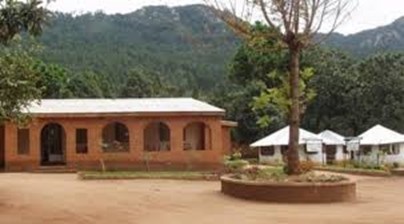
Panjira Lodge – just waiting for us

